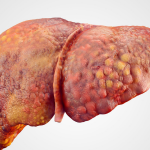Hormone Therapy May Pose Cardiovascular Risk for Gender Transitioning Individuals
Node Smith, ND
Patients receiving hormone therapy as part of their gender-transition treatment had an elevated risk for cardiovascular events, including strokes, heart attacks and blood clots, according to a study published in the American Heart Association’s journal Circulation.
The results are based on analysis of medical records of 3,875 Dutch individuals who received hormone treatment between 1972 and 2015 as part of their gender transition.
Physicians and transgender individuals urged to be aware of increased cardiovascular risk
“In light of our results, we urge both physicians and transgender individuals to be aware of this increased cardiovascular risk,” said study author Nienke Nota, M.D., a researcher in the department of endocrinology at the Amsterdam University Medical Center. “It may be helpful to reduce risk factors by stopping smoking, exercising, eating a healthy diet and losing weight, if needed before starting therapy, and clinicians should continue to evaluate patients on an ongoing basis thereafter.”
Past research has shown that hormone therapy increases cardiovascular risk among people receiving it to alleviate symptoms of menopause, yet research evidence remains scarce on the effects of hormone treatment in people undergoing gender transition. Even though such individuals tend to be younger than menopausal patients receiving hormone-replacement therapy, transgender people may have more psychosocial stressors and other factors that increase cardiovascular risk, the researchers said.
Analysis involved 2,517 transgender women
The analysis involved 2,517 transgender women, median age 30, who received estrogen, with or without androgen-suppressors, and 1,358 transgender men, median age 23, who received testosterone as part of their transition.
Researchers determined the incidence of acute cardiovascular events
To gauge risk, the researchers determined the incidence of acute cardiovascular events—heart attacks, strokes and deep vein thromboses (blood clots). They compared the incidence of such cases in the transgender population to that reported in the general population. Transwomen were followed for an average of 9 years since start of hormone therapy, while transmen were followed for an average of 8 years after starting with hormones.
The Analysis of Transwomen
The analysis showed that transwomen — individuals assigned male sex at birth but with female gender identity who were receiving hormones as part of their transition — had more than twice as many strokes as women (29 versus 12) and nearly twice as many strokes as men (29 versus 16). There were five times as many deep-vein clots among transwomen (73) than women (13) and 4.5 times more than men (73 versus 16). Heart attacks occurred at more than twice the rate among transwomen (30) than women (13). Transmen—those assigned female sex at birth but who had male gender identity and received hormones — had a more than three-fold elevation in heart-attack risk compared with women (11 versus 3).
Study was not designed to tease out the mechanism behind the increased risk
The study was not designed to tease out the mechanism behind the increased risk. The researchers caution that their study was based solely on a review of medical records and could not account for risk factors such as smoking, psychosocial stressors, dietary and exercise habits. While those risk factors probably contribute to the increased cardiovascular risk, the researchers suggest that the hormone therapy may contribute to increased risk as well.
Previous studies have shown triglyceride and insulin levels both increased as a result of estrogen therapy
In previous studies it has been shown that triglyceride and insulin levels, for example, have both increased as a result of estrogen therapy and both are known to promote clogging and inflammation of the blood vessels. Additionally, estrogen therapy can render the blood more prone to clotting, which may explain the higher rate of strokes and blood clots observed in transwomen, the authors said. The rise in heart attack risk observed in transmen receiving testosterone may be explained partly by the hormone’s tendency to make the blood stickier by increasing the concentration of red blood cells along with lowering the level of good cholesterol and raising the level of bad cholesterol, the research team said.
From the American Heart Association
 Node Smith, ND, is a naturopathic physician in Humboldt, Saskatchewan and associate editor and continuing education director for NDNR. His mission is serving relationships that support the process of transformation, and that ultimately lead to healthier people, businesses and communities. His primary therapeutic tools include counselling, homeopathy, diet and the use of cold water combined with exercise. Node considers health to be a reflection of the relationships a person or a business has with themselves, with God and with those around them. In order to cure disease and to heal, these relationships must be specifically considered. Node has worked intimately with many groups and organizations within the naturopathic profession, and helped found the non-profit, Association for Naturopathic Revitalization (ANR), which works to promote and facilitate experiential education in vitalism.
Node Smith, ND, is a naturopathic physician in Humboldt, Saskatchewan and associate editor and continuing education director for NDNR. His mission is serving relationships that support the process of transformation, and that ultimately lead to healthier people, businesses and communities. His primary therapeutic tools include counselling, homeopathy, diet and the use of cold water combined with exercise. Node considers health to be a reflection of the relationships a person or a business has with themselves, with God and with those around them. In order to cure disease and to heal, these relationships must be specifically considered. Node has worked intimately with many groups and organizations within the naturopathic profession, and helped found the non-profit, Association for Naturopathic Revitalization (ANR), which works to promote and facilitate experiential education in vitalism.
Node Smith graduated from the National University of Natural Medicine (NUNM) in 2017, and is currently licensed as a naturopathic physician in Oregon and working towards becoming licensed in Saskatchewan, Canada as well.









